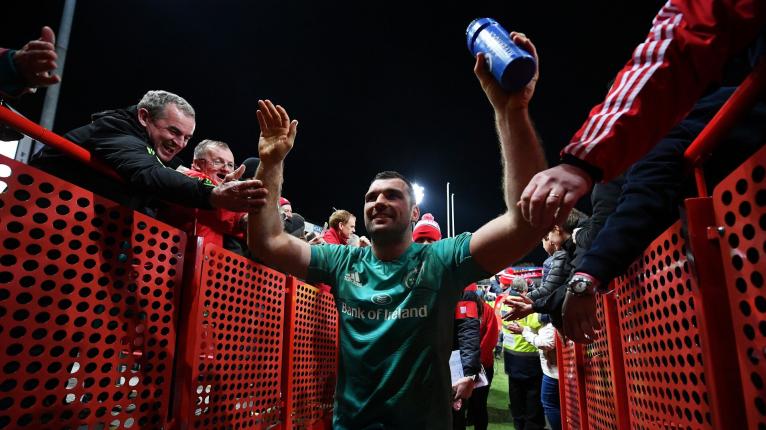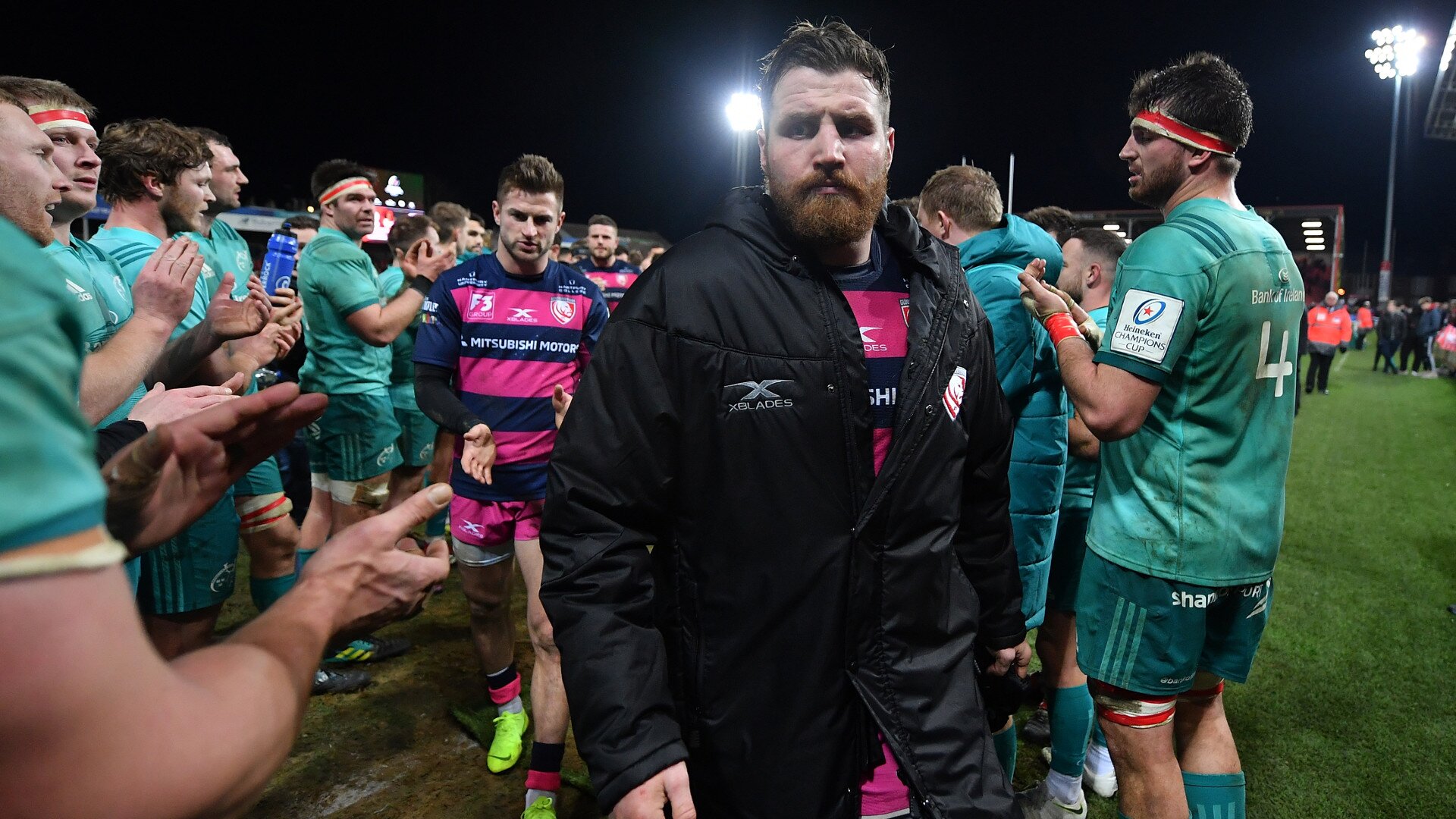Rugby union civil war brewing as PRO14's European dominion returns?

Buckle up.
Here comes a round six weekend where the PRO14 is growling with a collective Champions Cup snarl not witnessed since January 2012.
Come close of business on Sunday, five of the league’s seven participants could have reached the last eight, a development that will surely prompt an outpouring of Anglo-French anguish.
Leinster, Munster, Ulster and Glasgow are all out to do a number on Premiership opposition, Edinburgh have a Top 14 scalp in their sights. Bring it on is the united Celtic cry.
If all goes to plan and all five progress, it will reap a rich qualification harvest last savoured seven years ago.
Cardiff, Edinburgh, Leinster, Munster and Ulster all qualified back then for the European quarter-finals, and the rumbustious party didn’t stop there either. Three progressed to the semis, the campaign culminated in an all-Irish final in London and the fall-out was toxic.
English and French club owners demanded out from the existing European Rugby Cup (ERC) tournament. Demanded freedom to set up their own tournament and structure it differently. They got their way after a bloody civil war and Celtic consequences were initially grim.

Ever since the 1996/97 introduction of quarter-finals, there had always been a Celtic presence in the knockout stages.
However, four years after they enjoyed their greatest ever quarter-final show of strength, the cupboard was scarily bare. Not a single Irish, Welsh or Scottish side reached the last eight and the fearful outlook was that English and French money would go on and dominate, turning the business end of the three-league, six-nation event into an annual Anglo-French only affair.
The doomsayers, though, couldn’t have been more wrong. One season was all it took for the Celts to bounce back, three clubs reaching the 2017 quarter-finals.
It was the same representation last term, with the even better outcome of Leinster lifting the trophy. And now there’s even more PRO14 clubs spoiling for recognition. Its clubs occupy third, fourth, fifth, sixth and seventh spots in the qualification rankings after five rounds of matches.

It’s been quite the fightback, but will it prompt another divisive Anglo-French reaction? The last time there was a Celtic Five contingent reaching the last eight the toys – and everything else – came out of the pram.
Now, with the Champions Cup currently only having heads of agreement, television and sponsorship deals that run through to 2022, it will be interesting how relations develop in the next year or so.
Already, there are rumblings of a further reduction in participants, 20 teams cut to 16 to allegedly aid player welfare. There is also a summer 2020 deadline for people to announce their intention to quit the tournament in 2022. This was the clause that signalled the end for Europe’s previous incarnation, the French and English announcing in 2012 they would be gone from ERC two years later.
That painful goodbye that led to the formation of the rival European Professional Club Rugby (EPCR) which was supposed to make life harder for the Celts. Aside from the English and French cornering a greater share of the finances generated, the overall number of participants was shaved from 24 to 20 and no more would 11 PRO12 teams be accommodated, as was the case in ERC’s last tournament in 2013/14.

Neither would there be a guaranteed slot for at least one team each from Ireland, Italy, Scotland and Wales. Only the top six in the league would automatically qualify, putting pressure on PRO12 clubs to take their league more seriously than before.
The Anglo-French hope was that having PRO12 clubs compete more aggressively on two fronts would end to the practice of the Celts peaking for Europe by often excusing leading players from league matches.
It initially had the desired effect. The PRO12’s clubs struggled to keep pace when they went into Europe. Just one PRO12 team (Leinster) reached the last eight in 2014/15. A dramatic fall-off in fortunes in fixtures against Top 14 clubs was especially to blame.
Whereas 11 of 24 PRO12 versus Top 14 pool games (45.8%) were won by the Celtic teams in 2013/14, a campaign where three Irish provinces made the knockout stages, just four of 16 (25%) of these French fixtures were won by the Celts the following season.
Then came the devastating post-World Cup winter crash versus the English. PRO12 teams managed just two wins in 16 fixtures (12.5%) against Premiership opposition in 2015/16, an imbalance that resulted in a record five English sides making the knockouts in contrast to zero Celts getting through.
Doom and gloom? You bet. But predictions it would last long were dismissed by the likes of Stuart Lancaster. The former England boss was hardly a wet week in the door at Leinster when he shrugged off this perceived trend of Anglo-French dominance.
‘There was five English teams in the quarter-finals last season, do you think that was down to money or was it the timing of those pool games in the immediate aftermath of the World Cup which ultimately decided who was going to be in the quarter-final?

‘Ireland got to a later stage than England so their boys pretty much came back after losing against Argentina into Wasps. That had a bearing on it,’ he reasoned. ‘From what I have seen here, I personally don’t subscribe to the fact that the English and the French clubs will dominate.’
How right he was, Leinster winning their first trophy last May since leading the Celtic charge in 2012. The league’s teams won 11 of 18 pool fixtures last season against Premiership opposition (61.1%), a figure that stands at 10 wins in 15 games this season (66.6%). And last season’s six pool wins in 16 record versus the French (37.5%) now reads eight wins in 13 games this term (61.5%). Healthy numbers.
What will annoy Premiership and Top 14 clubs is their Celtic rivals are again at a stage where they don’t have to go all out to win league games as exhaustingly happens weekly in England and France where relegation exists.
The introduction of two South African clubs saw PRO12 become PRO14 and it led to a conference-style system, two divisions of seven where the top three clubs in each automatically qualify for Europe.
Continue reading below…
It’s a distorted method. Cardiff secured Champions Cup qualification for this season despite finishing fourth in Conference A, third place South African side Cheetahs ineligible to qualify for Europe.
Fair enough, you might say, but was it fair that Cardiff went through automatically when their 54 points tally was eclipsed by Ulster on 62 points and Treviso on 55 in the fourth and fifth Conference B places?
Clubs are evidently putting more emphasis on games against teams in their own conference, a targeting of fixtures epitomised by recent Edinburgh rotation.
Mindful of saving their best for the back-to-back December European clashes with Newcastle, they sent an unrecognisable XV to Cork the previous week and were shredded by six first-half tries from Munster, a team in the other conference whose fortunes don’t really matter to the Scots.
Not a good look for the league but a worthwhile bigger picture sacrifice as Edinburgh defeated Newcastle twice and now lead their European pool heading into Saturday’s Murrayfield finale against Montpellier.
They’re not alone. The Celts are back en masse and ready to party like it’s 2012 all over again.









































































